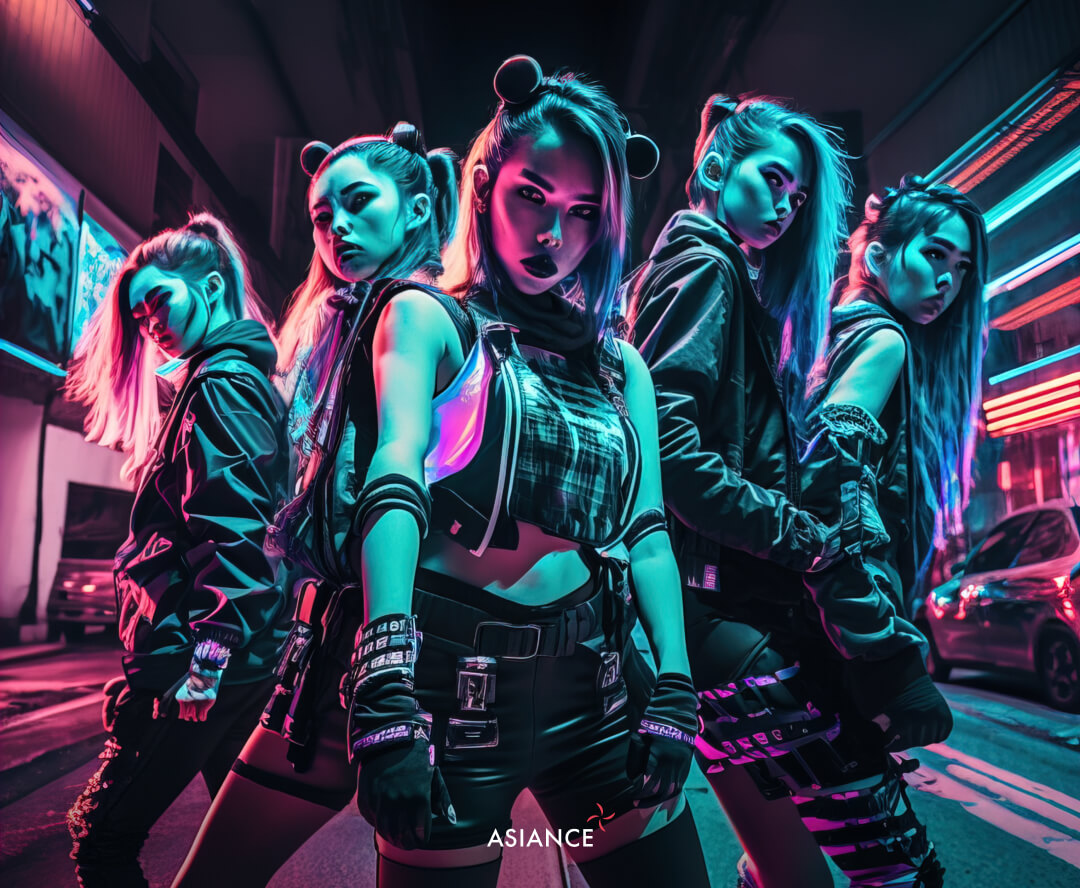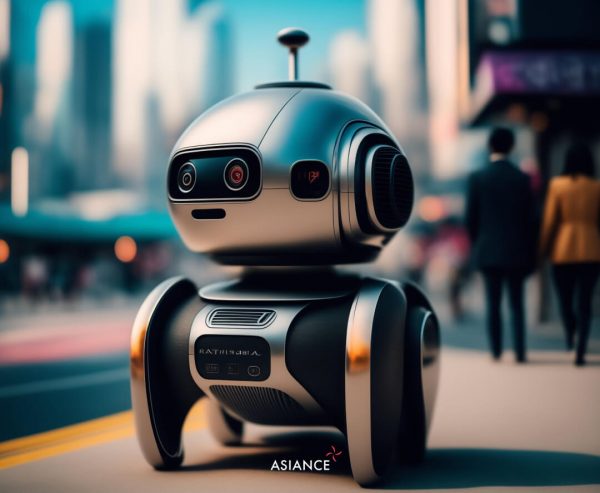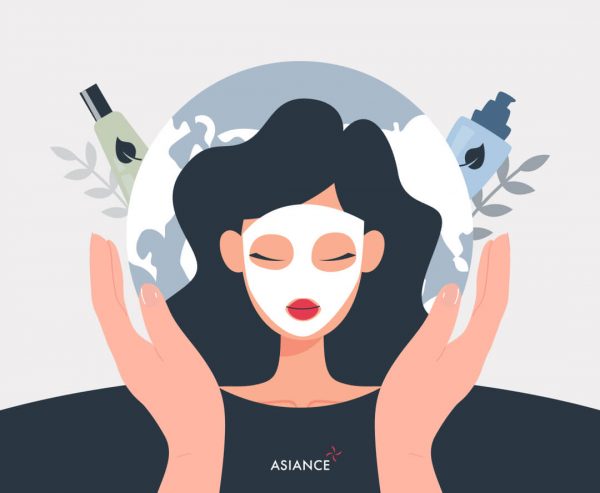The entertainment industry in South Korea is experiencing a transformative wave with the integration of artificial intelligence (AI). One notable example is the emergence of virtual idols in the form of the K-pop girl group “MAVE.” Composed entirely of AI-generated characters, MAVE has quickly gained attention since its debut under the label “Metaverse Entertainment.” Their first single and music video has already amassed an impressive 3.6 million views on YouTube, signaling the growing significance of AI and technology in the industry.
Another prominent example is the mobile app ZEPETO, developed by Naver Z Corporation, which has gained 340 million registered users globally since 2018. It enables users to create 3D avatars, explore virtual worlds, and engage with social content, collaborations, or trends. In April 2023, Zepeto launched a virtual Parisian world as part of its collaboration with the French brand “Ami”. This collaboration enabled users to dress with the brand virtually, showcasing the fusion of technology, entertainment, and even fashion, transcending borders and captivating users worldwide.
Not limited to South Korea or Asia, AI has also made its mark on the global entertainment scene through the phenomenon of deep fake videos. These digitally altered videos manipulate a person’s appearance to make them resemble someone else or appear a certain age. Notably, the deep fake videos of Tom Cruise, created by Miles Fisher, have been captivating millions of users on TikTok since 2021.
These fascinating displays of technological innovation demonstrate the vast potential of AI in reshaping the boundaries of entertainment.
Ethical concerns?
The South Korean show titled “Competition of the Century: AI vs Human” produced by SBS featured human experts from various fields competing against AI. Initially, this concept was seen as an innovative idea that made AI performance accessible to the public and demystified the technology. Sensing the readiness of the Korean audience, the show’s producer embarked on creating this six-part AI competition series that included an AI performance featuring the late Kim Kwang-Seok. Ethical questions arose when the voice of this famous folk singer, who passed away in 1996, was used in the show to sing a song released in 2002.
The inclusion of Kim Kwang Seok’s performance became possible through the help of Supertone, a start-up that provides AI audio solutions with singing voice synthesis technology.
While some may perceive the competition between an AI singer and a human as harmless entertainment, others caution that this technology presents threats that will require the implementation of stricter guidelines and regulations. Indeed, should AI be recognized as a legal entity with a legal personality, similar to humans, and be granted copyright? Who should be considered the rightful owner? Is it the creator of the AI program or the AI system itself? Beyond the question of copyright, the use of deceased voices in the show has ignited concerns about the ethics of resurrecting the voices of the dead. These discussions prompt a deeper exploration of the ethical and legalistic implications associated with AI’s involvement in the entertainment industry.
Another distressing issue is the proliferation of deep fake videos exploiting the images of female celebrities for pornographic purposes. In 2019, Amsterdam-based researchers Deeptrace identified over 14,000 deepfake videos online, and a staggering 96% of them involved non-consensual deepfake pornography featuring the images of female celebrities, many of whom were from South Korea.
Striking the right balance between necessary regulations that safeguard human safety without imposing excessive limitations that hinder the progress of AI technology is a crucial challenge. Finding this delicate equilibrium is essential to address the ethical concerns associated with AI in the entertainment industry while still nurturing technological advancements.
AI Policies in South Korea and the World
South Korea has been proactive in addressing the ethical implications of AI by releasing the “National AI Ethical Guideline.” This document, published by the Ministry of Science and Information, Communication Technology, establishes fundamental standards for individuals involved in the development and application of AI. The guideline emphasizes that AI should be developed and used in alignment with its intended purpose as a tool for enhancing human life, while also highlighting the importance of an ethical process throughout.
On a global scale, the United Nations System Chief Executives Board for Coordination took a significant step by endorsing the Principles for the Ethical Use of Artificial Intelligence in the United Nations System in September 2022. These principles were formulated through the collaborative efforts of the High-level Committee on Programmes (HLCP) and were approved during an inter-sessional meeting held in July 2022. This endorsement demonstrates the international recognition of the need for ethical guidelines governing the use of AI within the United Nations System.
Both national and international initiatives reflect the growing awareness of the potential risks and challenges associated with AI. They call for legal reforms, ethical guidelines, and social agreements to prevent the misuse of AI and ensure that its development and deployment are carried out responsibly. These strategies and policies aim to strike a balance between fostering innovation and safeguarding the well-being and interests of individuals and society in this era of rapidly advancing AI technologies.
Limitations
The integration of AI in the entertainment industry also comes with several limitations. One significant drawback is the inability of AI-generated idols to interact with their fans in real-life or through genuine voices. While technology can enhance the consumer experience and enable fans to connect with their favorite idols in new ways, it cannot replace the authentic experience of meeting them face-to-face or hearing their voices in person. These qualities cannot be replicated by AI systems, and that limitation is felt by fans who long for deeper connections with their beloved stars.
Concerns regarding the integration of AI in entertainment extend beyond emotional limitations. Some worry about potential job losses, a decrease in creative control, and the impact on artistic expression. The human touch and unique artistic expression that come from real-life performers are aspects that cannot be replicated by AI.
However, supporters of this integration argue that AI can enhance creativity and open up new opportunities for innovative entertainment production. They believe that the integration of AI in the entertainment industry will lead to exciting developments and unique experiences for both artists and audiences.
While the benefits and challenges of AI in the entertainment industry continue to be debated, it is clear that technology can supplement and enhance the entertainment experience. Still, it cannot fully replace the irreplaceable aspects of human connection, authenticity, and artistic expression. Striking a balance between technological innovation and preserving the core elements of human artistry remains an ongoing challenge.












